Mwelekeo Insights conducted an opinion poll to understand how Kenyans aged 30 and above perceive Gen Zs in different areas, especially after the significant political events of June 2024.
The survey focused on how older generations view the younger generation’s influence in politics, work ethic, and cultural values. The findings show that while many older Kenyans recognize the role of Gen Zs in shaping society, there are also concerns and misunderstandings that create generational tensions.
However, there is also an opportunity for collaboration between the two generations. One of the key findings from the poll is that a large majority of respondents, about 77%, believe that Gen Zs are highly politically aware.
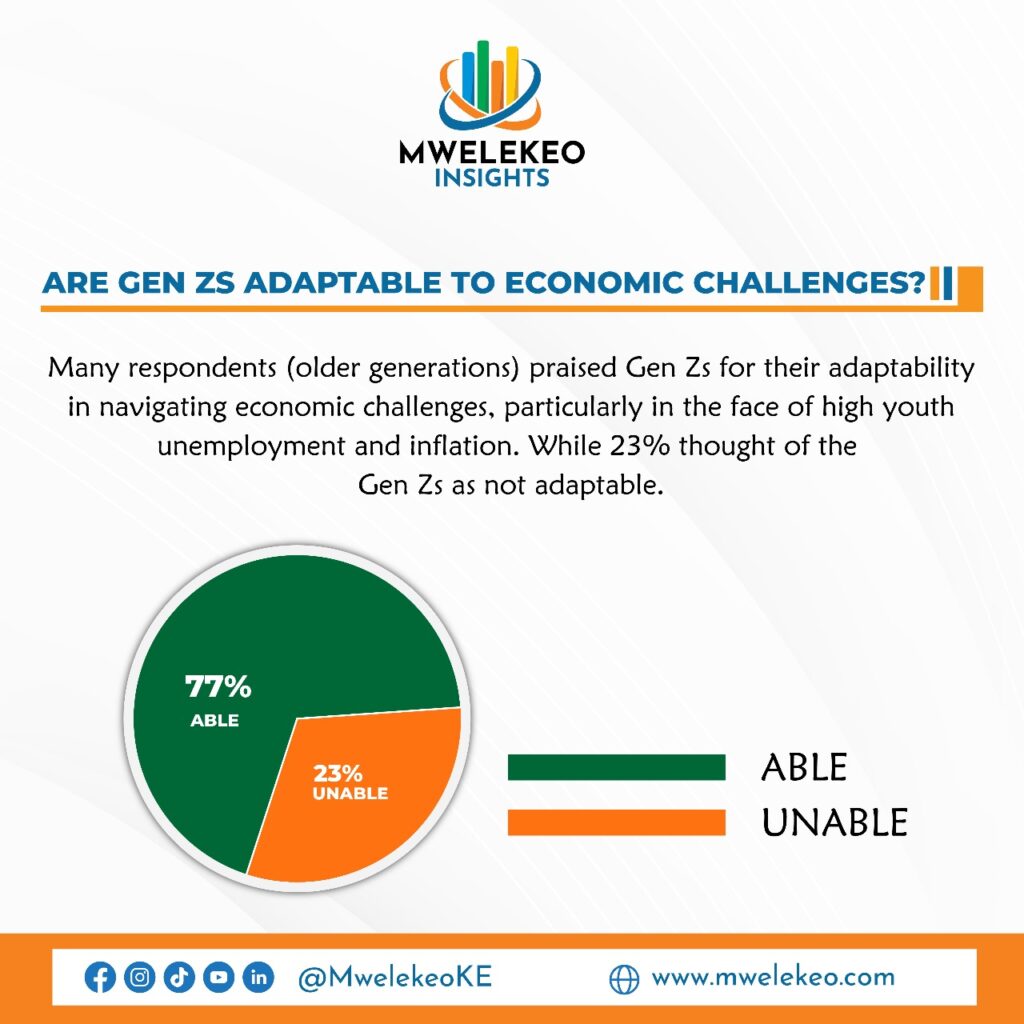
Many acknowledge that this generation actively participates in political discussions, particularly on social media, where they engage in debates about governance and social justice. However, 13% of the respondents disagreed, suggesting that Gen Zs’ engagement might be surface-level or driven by emotions rather than informed decision-making.
Another 10% were unsure, indicating that while some appreciate Gen Zs’ role in politics, others are skeptical of their impact. When it comes to activism, the opinions were divided.
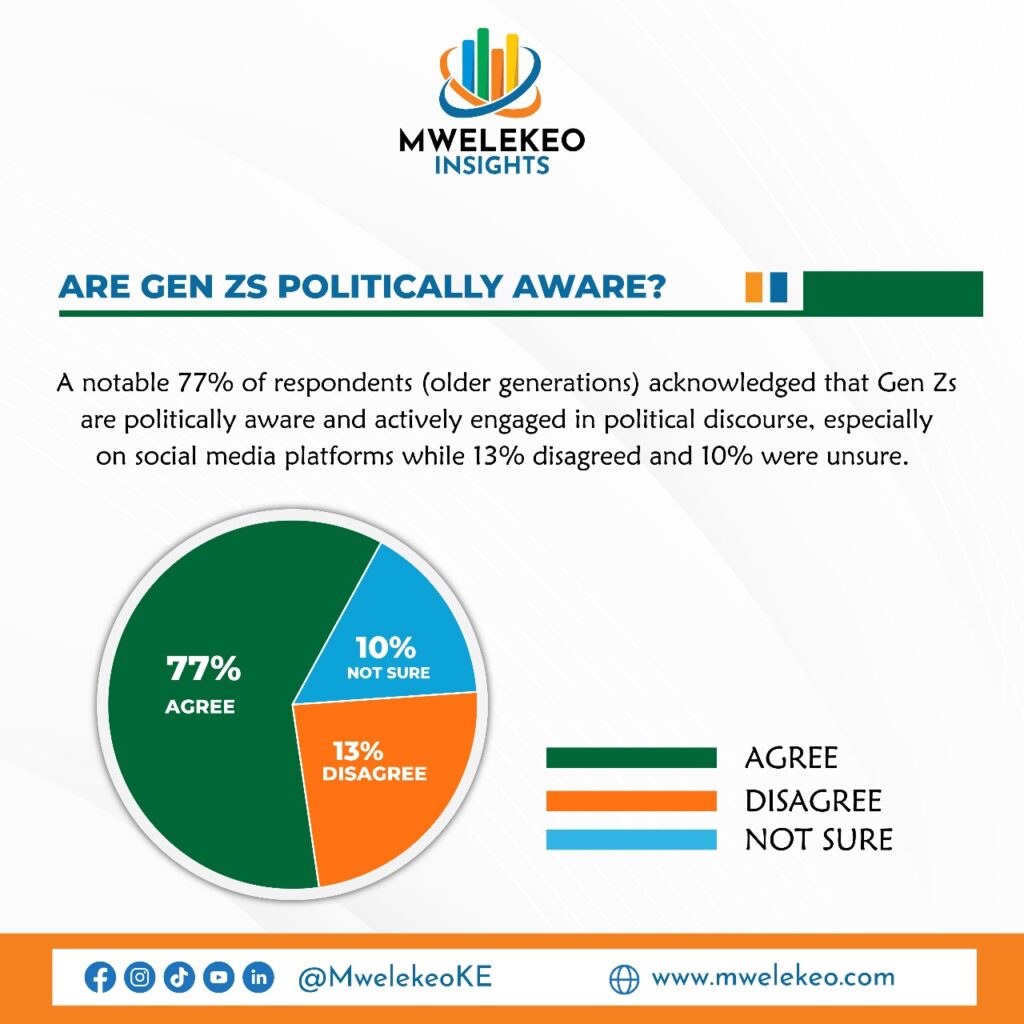
Mwelekeo Insights found that 51% of respondents supported Gen Z activism, recognizing its structured approach in organizing protests and campaigns against poor governance. This support highlights how older Kenyans see value in the youth-driven movements that have gained momentum in recent years.
However, 44% felt that Gen Zs’ activism lacks proper organization, which could affect its long-term impact. A small percentage, 5%, remained neutral, neither supporting nor opposing their activism.
Another major aspect of the survey was Gen Zs’ leadership potential. According to the poll, 57% of respondents believe that Gen Zs have leadership potential but need guidance and mentorship to develop strong governance skills.
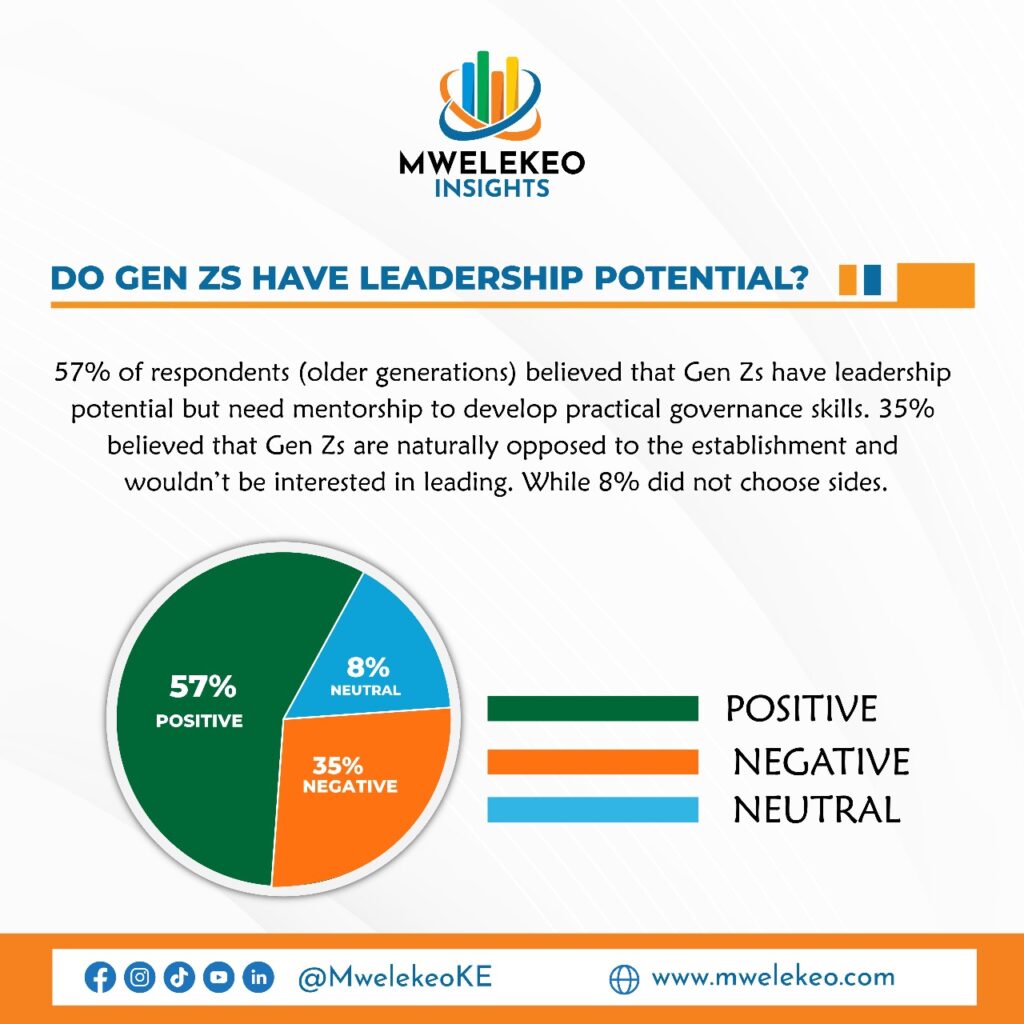
On the other hand, 35% thought that Gen Zs are naturally opposed to the current leadership structures and might not be interested in leading. A smaller group, about 8%, was neutral on the issue.
These findings suggest that while there is confidence in Gen Zs’ ability to lead, there is also a belief that they require more experience to navigate leadership roles effectively.
Mwelekeo Insights also explored perceptions about Gen Zs’ social and cultural values. A striking 84% of respondents viewed Gen Zs as progressive, particularly on issues like gender equality, mental health awareness, and environmental sustainability.
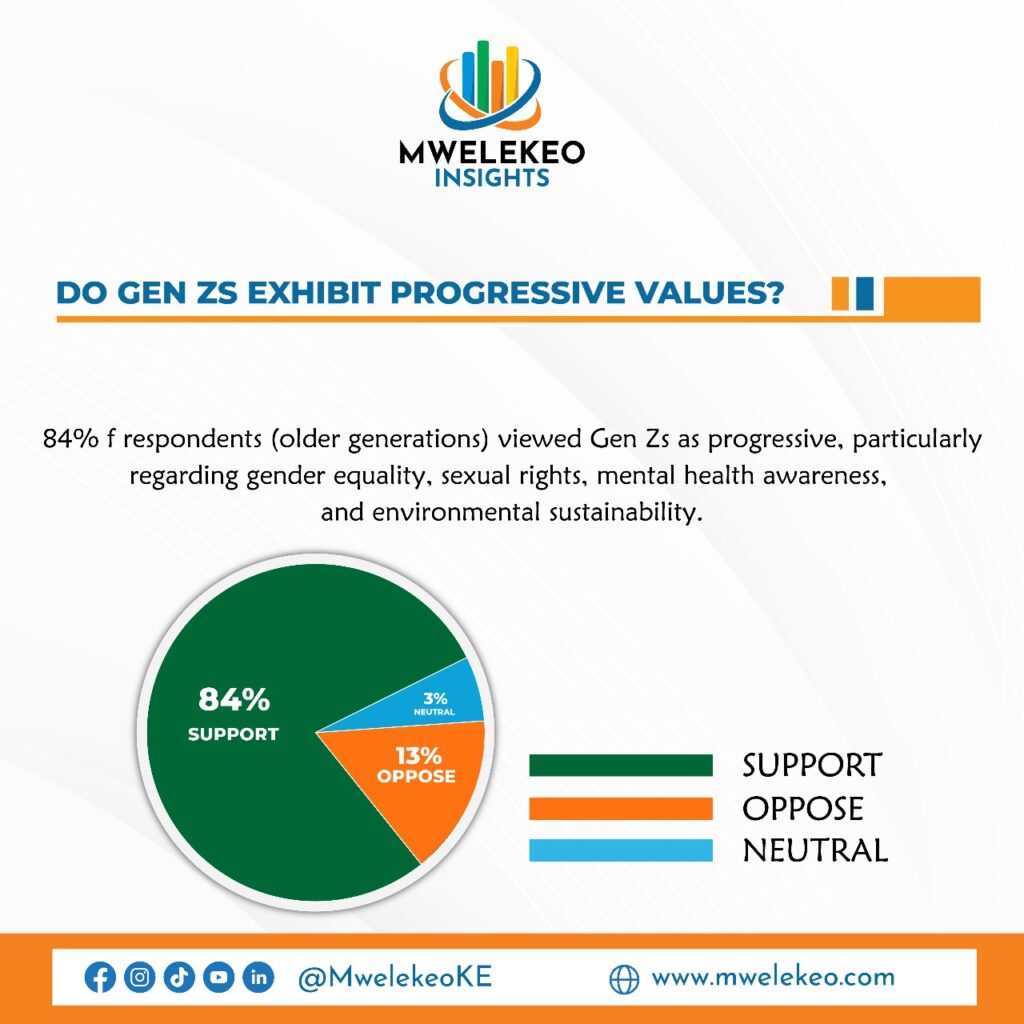
This overwhelming support shows that older generations acknowledge the progressive mindset that defines many young people today. However, 13% opposed these values, possibly due to traditional beliefs, while 3% remained neutral.
This data highlights the generational gap in views on social issues. Economic contributions and work ethic were also examined in the survey. A large percentage, 74%, acknowledged Gen Zs’ entrepreneurial spirit, especially in areas like online businesses, freelancing, and content creation.
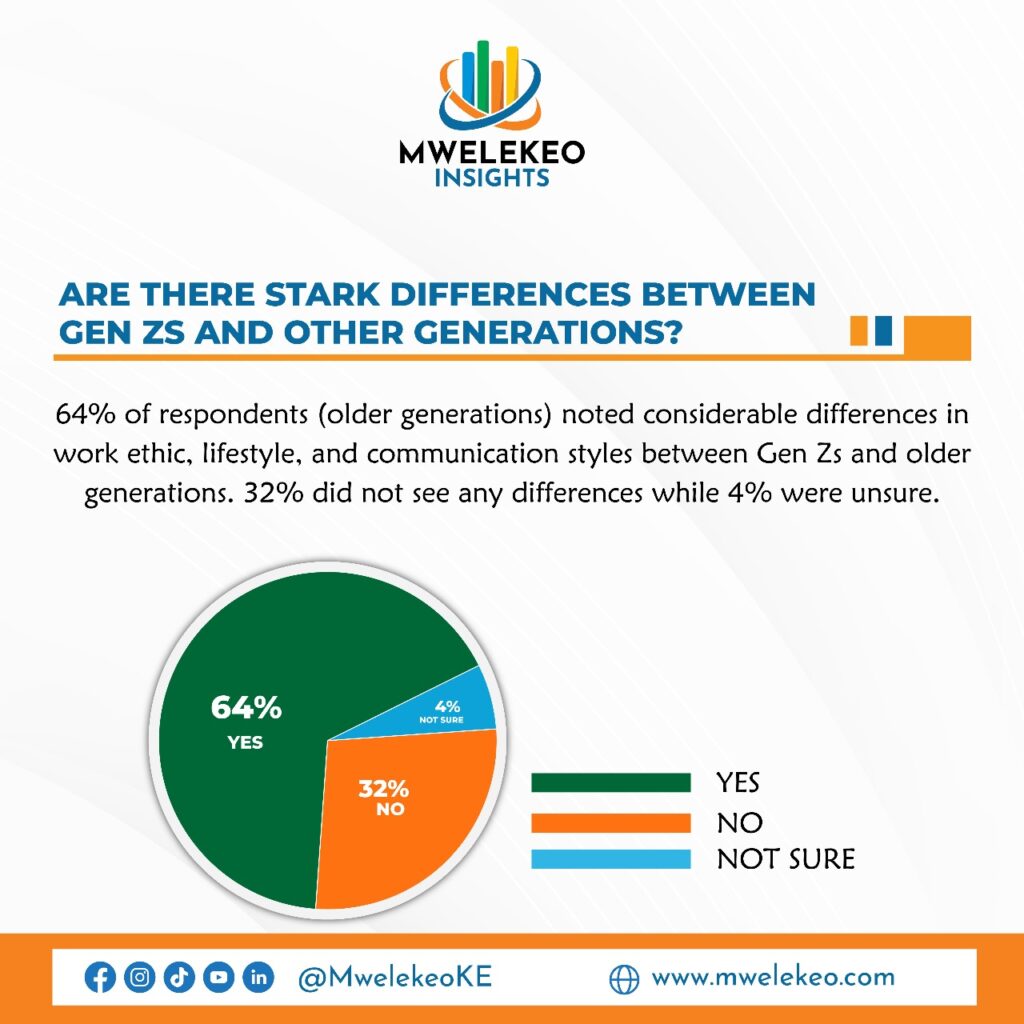
This finding shows that many older Kenyans recognize the innovative ways in which young people are making a living. However, 21% of respondents believed that Gen Zs are lazy and lack the drive to build long-term careers, while 5% were unsure.
This divide reflects the different work expectations and approaches between generations. Adaptability in economic challenges was another area of focus.
According to the findings by Mwelekeo Insights, 77% of respondents praised Gen Zs for their ability to navigate tough economic times, especially given high unemployment and inflation.
However, 23% thought that Gen Zs are struggling and not as adaptable as they seem. This indicates a mixed perception of how well young people handle financial hardships.
The survey also looked at how Gen Zs fit into traditional workplaces. A significant number, 48%, expressed concerns that Gen Zs struggle to conform to traditional organizational norms.
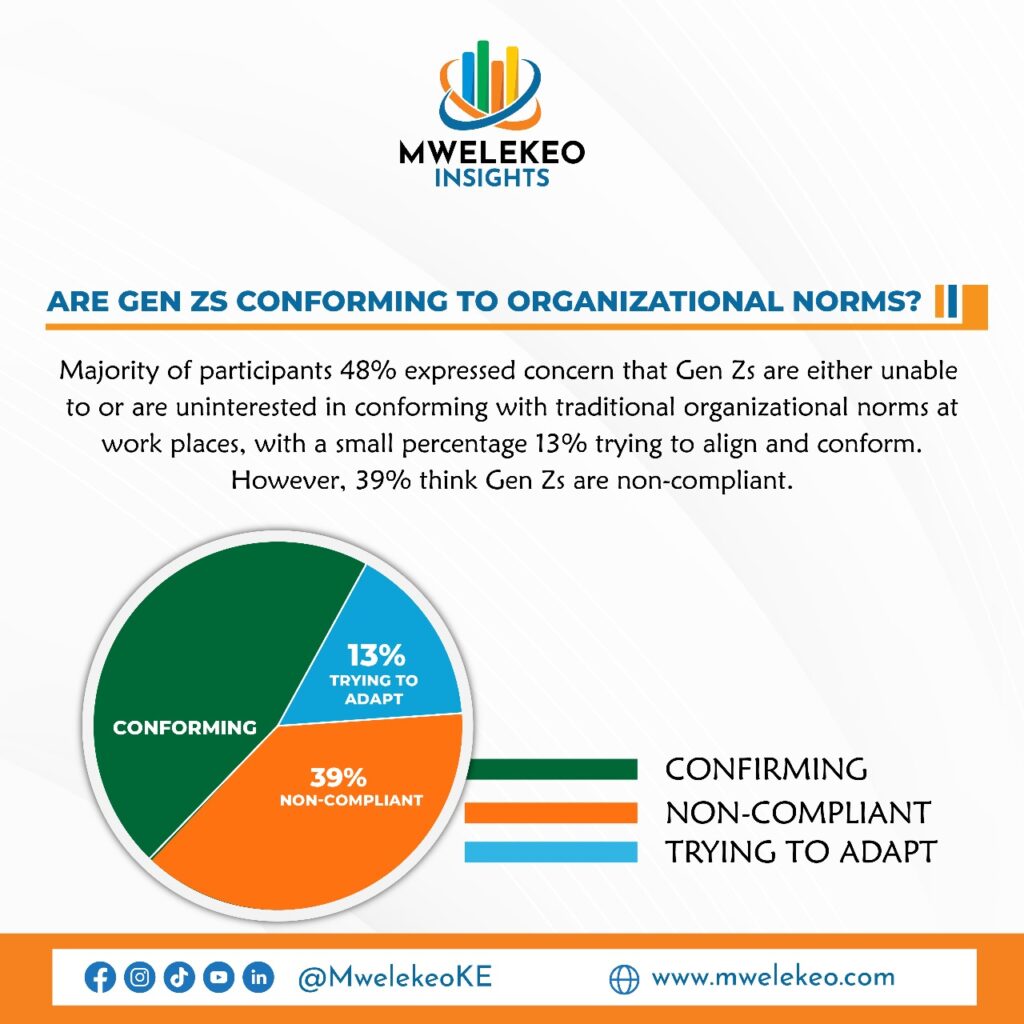
About 39% viewed them as non-compliant, while 13% said some are making efforts to adapt. These findings show that while some Gen Zs are trying to fit into conventional work environments, many still resist traditional workplace structures.
A major generational difference was noted in work ethic, lifestyle, and communication styles. Mwelekeo Insights found that 64% of respondents observed stark differences between Gen Zs and older generations in these areas. However, 32% saw no major differences, while 4% were unsure. This suggests that generational gaps remain significant in Kenyan society.
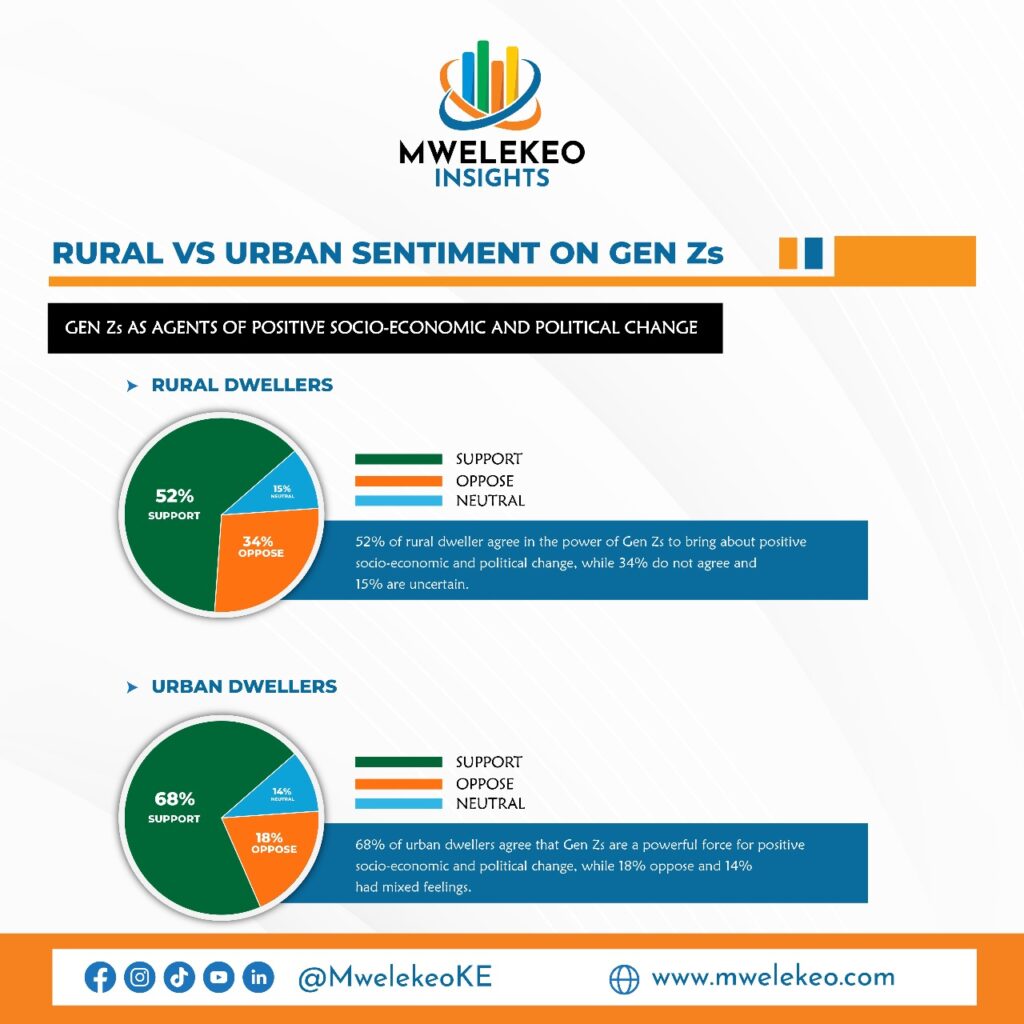
Despite these differences, many respondents saw hope for intergenerational collaboration. A majority, 78%, believed that mentorship programs, open dialogue, and collaborative projects could bridge the gap between generations. However, 14% dismissed the possibility of collaboration, and 8% were unsure.
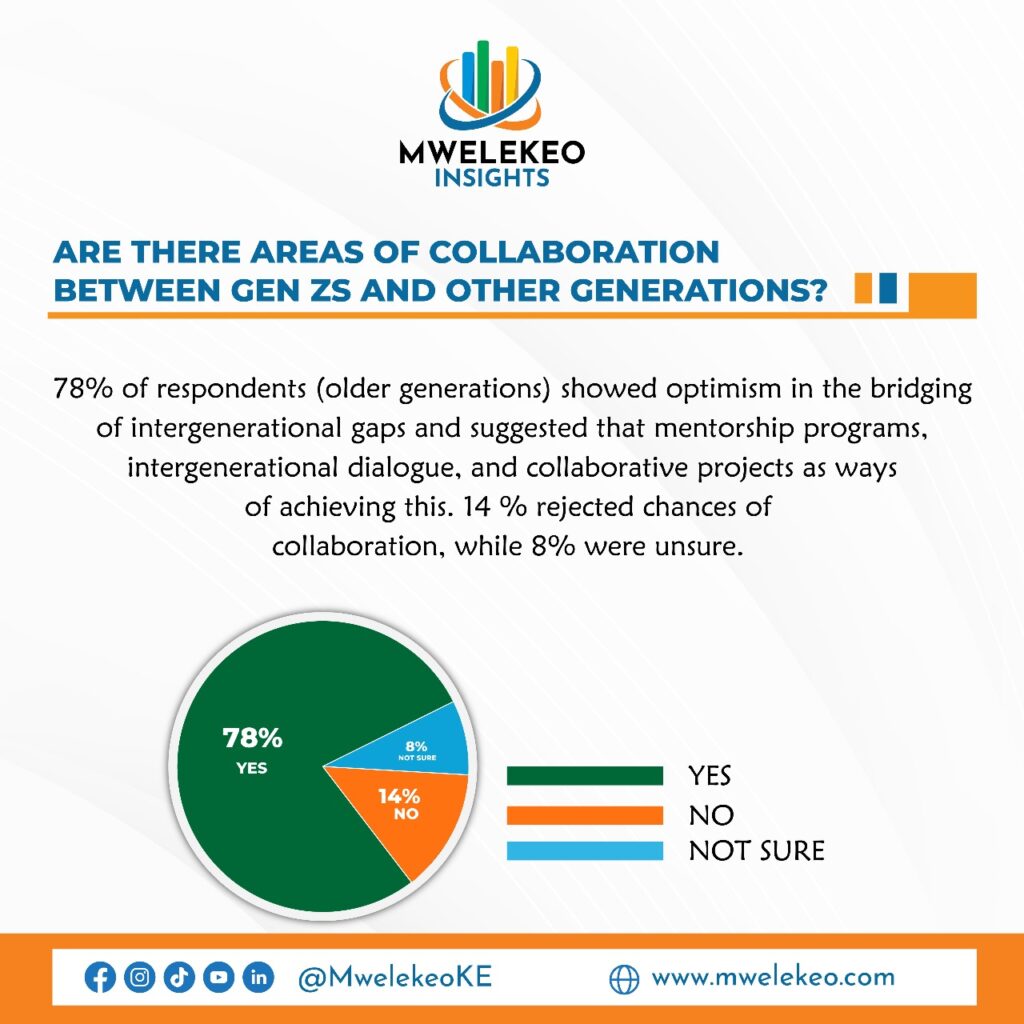
These findings suggest that while differences exist, there is room for cooperation and understanding between Gen Zs and older Kenyans.
Mwelekeo Insights’ poll provides valuable insights into the perceptions of Kenyans aged 30 and above regarding Gen Zs. While older generations recognize Gen Zs’ political awareness, activism, and progressive values, concerns remain about their work ethic and ability to adapt to traditional structures. However, the survey also highlights a willingness among many to find common ground through mentorship and dialogue.
This indicates that while generational tensions exist, there are also opportunities to build stronger intergenerational relationships for the benefit of society.
You can access the full report by visiting there social media handles, X @Mwelekeo Ke, Facebook @Mwelekeo Ke, Instagram @Mwelekeo Ke, Tiktok @Mwelekeo Ke, Linkedin @Mwelekeo KE and YouTube @Mwelekeo.
You can also access the full details of the survey via there official website; https://mwelekeo.com/report/kenyans-above-30-perceptions-of-genzs





















Add Comment